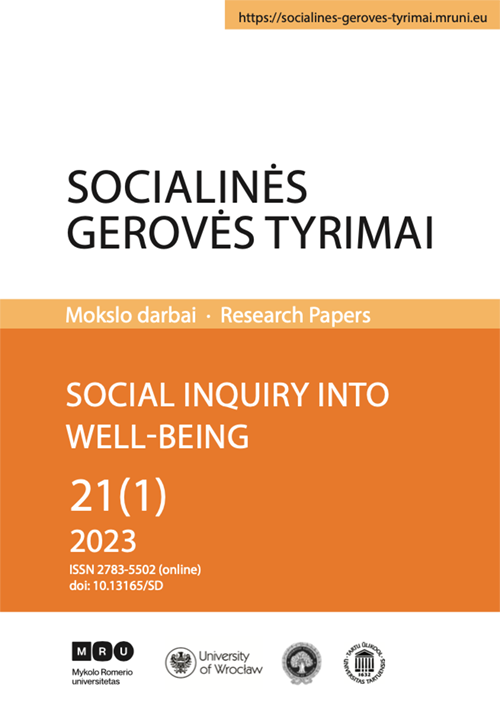FROM TRAUMA TO TRANSFORMATION: PREDICTORS OF POST-TRAUMATIC GROWTH IN UKRAINIANS AFFECTED BY WAR IN AN ONGOING CONFLICT SETTING
##plugins.themes.bootstrap3.article.main##
Abstract
This research focuses on the assessment of post-traumatic growth (PTG) in an ongoing crisis situation – namely, the war in Ukraine. This research was designed as a crosssectional correlational study and was conducted 6 months after the beginning of the Russian invasion of Ukraine. The authors focused on the following sociodemographic aspects:
gender, age, marital status, number of children, place of current residence (either within or
outside Ukraine), subjective evaluation of financial state, satisfaction with current living
conditions, and current employment status. Personal life-experiences of traumatic events
were assessed using the Life Events Checklist (LEC-5); PTG was assessed using the PostTraumatic Growth Inventory (PTGI). The study included 706 participants (age M = 32.1);
155 males and 541 females. Using one- and two-way ANOVA, we answered the following
research questions: To what extent do individuals living in war-torn areas exhibit indications of PTG? Can sociodemographic variables serve as reliable predictors of PTG? How do
levels of PTG differ between individuals residing in Ukraine and those living abroad? What
is the relationship between PTG and war-related trauma? It was found that people living in
war-torn areas exhibit moderate levels of PTG. Women are more prone to PTG than men;
younger and older participants show higher levels of PTG, while middle-aged participants
exhibit lower levels; and financial security increases PTG. Presence in Ukraine increases
personal strength, while living outside of Ukraine increases the possibilities for new PTG
strategies. Trauma exposure during the war does not increase levels of PTG.
##plugins.themes.bootstrap3.article.details##
Mykolas Romeris University retains copyright ownership and publishing rights. Authors contributing to Social Inquiry into Well-Being agree to publish their articles under a Creative Commons Attribution 4.0 International Public (CC BY) License.![]()







